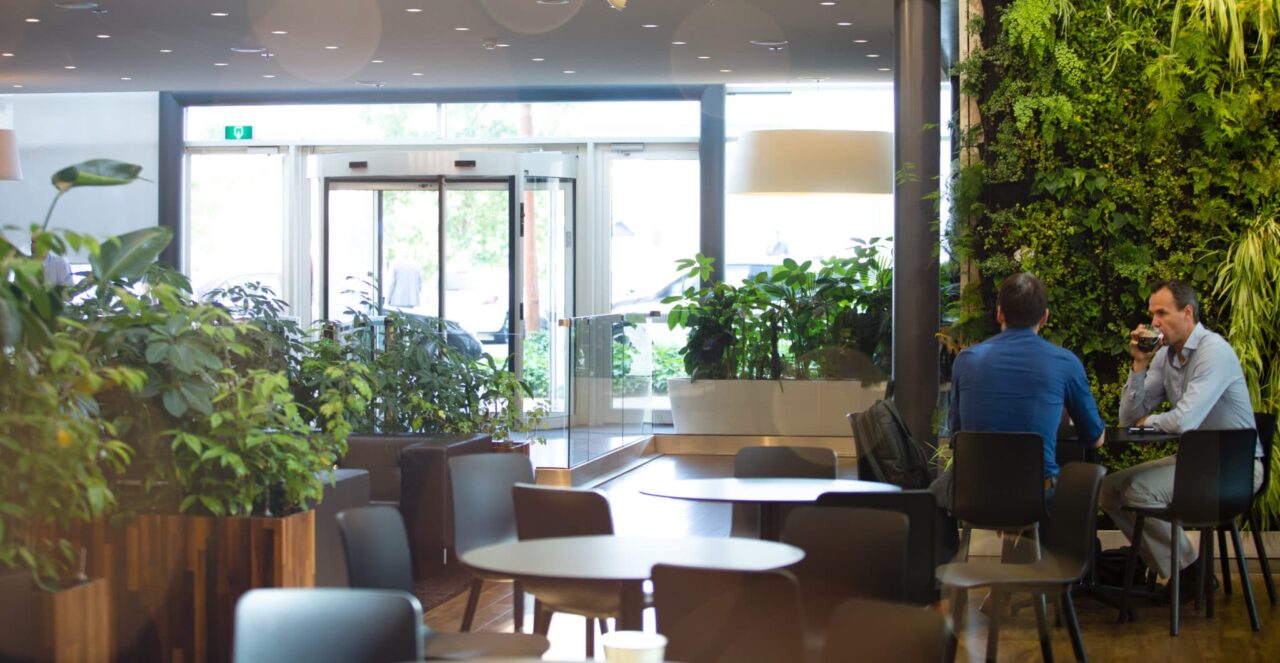The internet has transformed our world in the past 30 years, and just as someone in 2009 would marvel at the slick, seamless internet-based services and apps that we take for granted today, a decade from now we will be astonished by what the next-generation of broadband has made possible.
Ultrafast internet – delivered underground through cables and fibre – will be the foundation of a fourth industrial revolution. The possibilities opened up by Gigabit internet are truly exciting, it will turbo-boost a range of technologies like IoT, cloud-based gaming and artificial intelligence – innovations which have not yet reached their full potential, and it will enable a wave of creativity and invention. And you can be certain it will bring about significant social and economic benefits in the areas they are deployed, as detailed in the report by economists, Oxera, we released earlier this month.
Across Europe, politicians and regulators have recognised that as more devices become internet-connected, as more of our daily lives are spent online, and as the quality and quantity of the things we stream and download continues to increase, internet connections need to deliver the connectivity and speed that will make the future possible.
The European Union’s European Electronic Communications Code proposes that “by 2025 all schools, transport hubs and main providers of public services as well as digitally intensive enterprises should have access to internet connections with download/upload speeds of 1 Gigabit of data per second. In addition, all European households, rural or urban, should have access to networks offering a download speed of at least 100 Mbps, which can be upgraded to 1 Gigabit.”
Liberty Global’s continued investment in Europe – €20bn in the past five years – means that the EU’s target for six years from now is already a reality for millions of people and businesses across the continent.
The end of September saw Liberty Global and our operating companies launch Gigabit broadband throughout Switzerland, Brussels and Flanders in Belgium, and in the British city of Southampton.
Telenet’s Gigabit network has been expanded to its entire network – more than three million premises in Belgium. UPC Switzerland launched 1 Gigabit speeds across its entire footprint last month, both in cities and rural areas, so more than 75 percent of all Swiss households can benefit from the deployment. And in the UK, Southampton became the UK’s first GigaCity when Virgin Media switched on Gigabit speeds across its network, closely followed by Manchester in October.
These additions to Liberty Global’s next-generation networks follow 12 Polish cities, including Warsaw, Kraków and Gdańsk, and three cities in Slovakia, including Bratislava, where Liberty Global has made Gigabit connections available at scale.
There are now nineteen locations across Europe where millions of homes and businesses can access superfast internet. And this is just the beginning – Liberty Global will continue to help the EU deliver next-generation broadband speed and reliability. Utrecht became the Netherlands’ first GigaCity just last month, and we are set to launch more GigaCities throughout 2020.
The company’s drive towards next-generation connectivity and technology convergence across Europe is based on flexible, futureproof Docsis 3.1 technology which is already in the ground across large sections of our network. It allows us to switch on ultrafast networks with minimal disruption, in contrast to the upheaval that installing full fibre networks would require. Even more impressively, Gigabit speeds are just the beginning of what Docsis 3.1 can deliver.
The new frontier in creating the next-generation of broadband is 10G – broadband connections of 10Gbps, ten times faster than today’s fastest connections. We are committed to delivering 10G over the next decade, and can and will do so, with the infrastructure that is currently in use.
As Liberty Global leads the revolution of ultrafast internet across Europe, there are also major advances in mobile connectivity, with 5G connections bringing users download speeds many times faster than 3G and 4G. Ultrafast broadband and mobile connections are both essential to the future that we all want to build. They are complementary services, each of which will be in demand as customers come to rely on and expect the lightning-quick internet access they provide.
The average home already consumes 200 GB of broadband data per month, while the average mobile user consumes 3 GB[1] of data per month. Data consumption in the home and out, is expected to increase exponentially year on year – at a rate of 30% CAGR. These figures clearly demonstrate that reliable, consistent and secure broadband connections will remain the best way to access the internet, with 5G mobile providing a great solution when mobile users can’t access a WiFi network.
With Gigabit speeds available to millions, more GigaCities ready to spring up across Europe, and 10G broadband on the horizon, it’s worth taking time to note the remarkable fact that the world we live in today – with access to the most advanced technology ever – will seem limited when viewed through the prism of progress that next generation internet will enable. Liberty Global is proud to be at the heart of these important advances in connectivity and technology convergence as our investments enable the fourth industrial revolution.
[1] Ofcom Communications Market Report, 2019










